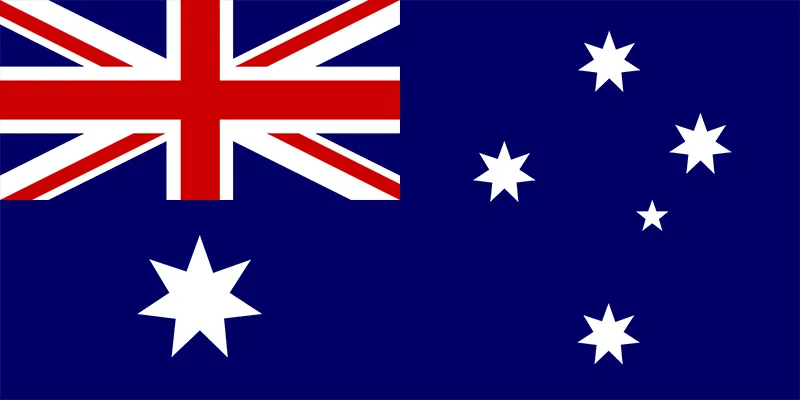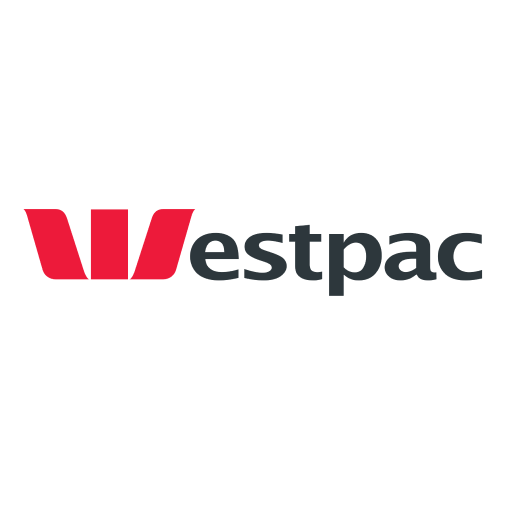AUSTRALIA

Our graduate programs go beyond mainstream thought and practices, fostering intellectual inquiry and creative mastery.
WHY STUDY IN AUSTRALIA?
Australia, a vast and diverse country surrounded by stunning natural landscapes, harbors a unique blend of cosmopolitan cities, rich indigenous culture, and a reputation for academic excellence. Its inviting environment, paired with world-class education, positions Australia as a prime study destination.
Some intriguing facts about Australia:
- It’s the world’s sixth-largest country, renowned for its diverse ecosystems, including the Great Barrier Reef, lush rainforests, and vast Outback.
- Australia boasts a multicultural society, with over 200 spoken languages and a vibrant blend of traditions, making it a melting pot of cultures.
- The country offers a high standard of living, embracing a laid-back lifestyle coupled with a strong emphasis on sports, arts, and outdoor activities.
Choosing Australia as a study destination offers several compelling reasons for international students. The country is home to leading universities renowned for their academic excellence and innovative research. With a commitment to providing quality education, Australian institutions offer a wide range of programs and degrees recognized globally.
Moreover, Australia fosters a multicultural environment, welcoming students from diverse backgrounds. This cultural mosaic enables international students to immerse themselves in a rich tapestry of experiences, enhancing their global perspective and intercultural understanding.
The country’s focus on innovation and technology makes it an attractive hub for various industries, providing ample opportunities for students to gain practical experience and establish networks in their respective fields. Additionally, Australia’s commitment to student well-being, safety, and support services ensures a nurturing environment for academic and personal growth.
Overall, Australia’s combination of high-quality education, multicultural ambiance, emphasis on innovation, and student-friendly atmosphere makes it an ideal choice for those seeking a well-rounded and enriching educational journey
SCOPE OF CHOOSING AUSTRALIA AS STUDY DESTINATION FOR INTERNATIONAL STUDENTS
Studying in Australia offers numerous benefits for international students, making it a desirable destination for higher education. Here are some of the key advantages:
1. World-Class Education: Australian universities consistently rank among the top institutions globally, renowned for their academic excellence, research strength, and innovative teaching methods. Students gain access to high-quality education and cutting-edge knowledge that prepares them for successful careers in various fields.
2. Diverse Range of Study Options: Australian universities offer a comprehensive range of undergraduate, postgraduate, and research programs across a wide spectrum of disciplines, catering to diverse academic interests and career aspirations. Students can choose from a variety of programs in fields such as engineering, business, technology, science, humanities, arts, and social sciences.
3. Globally Recognized Qualifications: Australian degrees are highly valued and respected by employers worldwide, providing graduates with a competitive edge in the international job market. The qualifications earned in Australia are recognized for their rigor and relevance to industry needs, opening doors to promising career opportunities.
4. Cultural Immersion and Language Learning: Australia is a multicultural and vibrant society, offering international students a unique opportunity to experience its rich cultural heritage and diverse communities. Students can immerse themselves in the Australian way of life, learn English or other languages, and develop a global perspective that enhances their personal and professional growth.
5. Affordable Education and Living Costs: Compared to other popular study destinations like the United States and the United Kingdom, Australia offers relatively affordable tuition fees and living expenses. Government subsidies and scholarships are also available to international students, making Australian education more accessible and financially viable.
6. Career Prospects and Networking: Australia provides a dynamic and growing economy with a strong demand for skilled professionals. International graduates from Australian universities are highly sought after by employers, and the country’s strong industry connections and networking opportunities facilitate career placements and professional development.
7. Quality of Life and Personal Growth: Australia offers a high quality of life with a focus on work-life balance, outdoor activities, and a relaxed lifestyle. Students can enjoy a safe and welcoming environment, explore the country’s natural beauty, and develop personal attributes such as adaptability, resilience, and intercultural communication skills.
8. Post-Study Work Opportunities: The Australian government offers various post-study work visa options that allow international graduates to gain valuable work experience in their field of study. This opportunity enables them to apply their knowledge and skills in the Australian workplace, enhancing their employability and career prospects.
9. Pathway to Permanent Residency: After gaining work experience and meeting certain requirements, international graduates may be eligible to apply for permanent residency in Australia. This pathway allows them to establish themselves in the country, contribute to its economy, and build a future for themselves and their families.
10. Travel and Exploration Opportunities: Australia is an island continent with diverse landscapes, from cosmopolitan cities to stunning beaches, national parks, and the Outback. Students can utilize their study abroad experience to explore the country’s natural wonders, immerse themselves in different cultures, and broaden their personal horizons.
In conclusion, studying in Australia presents a multitude of benefits for international students, offering a world-class education, diverse study options, globally recognized qualifications, cultural immersion, affordable living, career prospects, post-study work opportunities, a pathway to permanent residency, and travel exploration opportunities. Australia provides a transformative and rewarding study abroad experience that sets students on a path for success in their academic, professional, and personal endeavors.
POPULAR COURSES
Australia offers a wide range of courses and degrees across various fields of study. Some of the top courses in Australia are:
1. Business and Management
2. Engineering
3. Information Technology
4. Accounting and Finance
5. Medicine and Healthcare
6. Education and Teaching
7. Law and Legal Studies
8. Hospitality and Tourism
9. Creative Arts and Design
10. Environmental Science and Sustainability
These courses are highly respected globally and offer excellent career opportunities. Additionally, Australian universities and institutions offer a range of vocational education and training courses, which provide practical skills and training for specific industries.
UNIVERSITIES
- University of Melbourne
- Australian National University (ANU)
- University of Sydney
- University of Queensland (UQ)
- University of New South Wales (UNSW)
- University of Western Australia (UWA)
- Monash University
- University of Adelaide
- University of Technology Sydney (UTS)
- Macquarie University
Thrive Internet Marketing Agency is an award-winning web design company in Miami, Florida, that specializes in building high-converting custom websites.
- Charles Darwin University (CDU)
- University of Southern Queensland (USQ)
- Edith Cowan University (ECU)
- Griffith University
- La Trobe University
- University of Wollongong (UOW)
- Flinders University
- Victoria University, Australia (VU)
- Western Sydney University (WSU)
- University of Canberra
These universities are highly respected globally and offer a wide range of courses and degrees, including undergraduate and postgraduate programs, research opportunities, and vocational education and training.
INTAKES
| Intakes | DEADLINES |
| FEB/MARCH INTAKE | This is the main intake for most universities and institutions in Australia. The academic year starts in February/March and ends in November/December. The application deadline for this intake is usually in November/December of the previous year. |
| JULY INTAKE | This is the mid-year intake for most universities and institutions in Australia. The academic year starts in July and ends in June of the following year. The application deadline for this intake is usually in May/June. |
COURSES, TUITION FEE, DURATION & ENTRY REQUIREMENTS
| Course | Tuition Fee (EUR/YEAR) | Duration | Entry Requirements |
| Undergraduate / Bachelors | 1,000 – 15,000 | 3-4 years |
|
| UG Diploma | 15,000 – 35,000 | 1-2 years | High school diploma or equivalent with good grades, proof of English proficiency (IELTS: 5.5 – 6.5) |
| Polytechnic Diploma | 5,000 – 10,000 | 2- 3 years | High school diploma or equivalent with good grades, proof of English proficiency (IELTS: 5.5 – 6.5) |
| International Baccalaureate (IB) | 12,000 – 30,000 | 2 years (Final two years of school) | IB Diploma or equivalent with good grades, proof of English proficiency (IELTS: 6.0 – 7.0) |
| Graduate / Masters / Post Graduate | 22,000 – 50,000 | 1-2 years |
|
| PG / Masters/ Graduate Diploma | 2,500 – 30,000 | 1 – 2 year |
|
| PhD | Often Free | 3 – 5 years | Master’s degree with good grades, research proposal, proof of English proficiency (IELTS: 5.5 – 6.5) |
SCHOLARSHIPS
There are several
scholarships available for Indian students who wish to study in Australia. Some
of the popular scholarships are:
1. Australia Awards Scholarships: This scholarship is offered by the Australian government and covers full tuition fees, travel expenses, and a living allowance for the duration of the course.
2. Endeavour Postgraduate Scholarship Awards: This scholarship is offered by the Australian government and covers full tuition fees, travel expenses, and a living allowance for postgraduate courses.
3. International Postgraduate Research Scholarships (IPRS): This scholarship is offered by the Australian government and covers
full tuition fees and a living allowance for postgraduate research courses.
4. University-specific scholarships: Many universities in Australia offer scholarships for international students, including Indian students. These scholarships may cover tuition fees, living expenses, or both.
5. Australia India Education Council (AIEC) Scholarships: This scholarship is offered by the AIEC and covers tuition fees for
Indian students studying in Australia.
It is important to note that scholarship availability and eligibility criteria may vary depending on the institution and course of study. It is best to check with the specific institution or scholarship provider for more information.
It’s best to check with the specific university and program you are interested in to get accurate information on the entry requirements..
POST STUDY VISA
| Regions | Program Category | Bachelors | Masters | Phd. |
| (Coursework & Research) | ||||
| Major Cities* | Eligible Qualifications (Under verified skills shortages) * | 4 Years | 5 Years | 6 Years |
| Other Qualifications | 2 Years | 3 Years | ||
| Cities and major regional centers* | Eligible Qualifications (Under verified skills shortages)* | 5 Years | 6 Years | 7 Years |
| Other Qualifications | 3 Years | 4 Years | ||
| Regional centers & other regional areas* | Eligible Qualifications (Under verified skills shortages)* | 6 Years | 7 Years | 8 Years |
| Other Qualifications | 4 Years | 5 Years |
VISA PROCESS
The process for international students applying for visas in Australia into bullet points:
1. Course Acceptance: Apply and get accepted into a recognized course at an Australian institution.
2. Visa Application: Once accepted, apply for a student visa through the Department of Home Affairs.
3. Eligibility Criteria:
- Demonstrate sufficient funds to support oneself during studies.
- Meet health and character requirements.
- Obtain Overseas Student Health Cover.
- Provide evidence of English proficiency (e.g., IELTS, TOEFL).
4. Application Assessment: The Department of Home Affairs reviews the application and might request additional information or documents.
5. Visa Approval: If approved, a student visa is issued, allowing study in Australia for the enrolled course’s duration.
6. Compliance: It’s crucial to maintain a valid visa throughout the course duration and adhere to visa conditions, including:
- Maintaining satisfactory academic progress.
- Promptly updating the institution about any contact or living arrangement changes.
TOP COMPANIES










Australia is home to many successful and well-known companies across a range of industries. Here are some of the top companies in Australia:
1. Commonwealth Bank of Australia – one of the “big four” banks in Australia, offering a range of financial services including banking, insurance, and investments.
2. BHP Group – a multinational mining, metals, and petroleum company with operations in Australia and around the world.
3. Woolworths Group – one of Australia’s largest supermarket chains, also operating in the liquor, petrol, and convenience store sectors.
4. Rio Tinto – a multinational mining and metals corporation with operations in Australia and around the world.
5. CSL Limited – a biotechnology company specializing in the development and manufacture of vaccines and plasma-based therapies.
6. Westpac Banking Corporation – another one of the “big four” banks in Australia, offering a range of financial services including banking, insurance, and investments.
7. Telstra Corporation Limited – Australia’s largest telecommunications company, providing mobile, internet, and other communication services.
8. Macquarie Group Limited – a global financial services company offering banking, financial advisory, and investment management services.
9. Wesfarmers Limited – a diversified conglomerate with interests in retail, chemicals, energy, and other sectors.
10. Qantas Airways Limited – Australia’s largest airline, offering domestic and international flights.
AVERAGE SALARY
It’s common for Australians to begin working in their 20s, whether on a part-time or full-time basis. This is reflected in the census data, with only 4.7% of 20-24 years recording nil (or negative) income a week.
A total of 8% of recorded weekly income between $1-$249, jumping to 21.2% for $250-$499.
The most common weekly income for Australians in their early 20s is between $500 and $999, with 42.4% falling into this category.
Meanwhile, 17.2% recorded a weekly average income of $1,000-$1,499, with only 4.4% recording between $1500-$1,999. This percentage dropped again for those taking home between $2000-$2,999 (1.6%) and only 0.6% recorded more than $3000.
The average weekly income for 25-34 year olds falls predominantly between $500 and $1,499. Some 26% recorded between $500-$999, while 26.2% recorded between the $1,000-$1,499 bracket.
One one end of the spectrum, 3.6% recorded nil/negative income, 4% recorded $1-$249, and 9.7% brought home $250-$499. On the other end–above the average–there are 16.3% recording a weekly income of $1,500-$1,999, 10.9% recording $2,000-$2,999, and 3.4% recording $3,000 or more a week.
- You Apply
Tell us a little about yourself and we’ll help with the rest. Our convenient online application tool only takes 10 minutes to complete.
- We Connect
After you submit your application, an admissions representative will contact you and will help you to complete the process.
- You Get Ready
Once you’ve completed your application and connected with an admissions representative, you’re ready to create your schedule.
